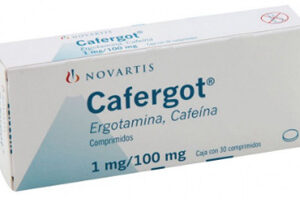Tizanidine is a medication that belongs to the class of drugs known as muscle relaxants. It is primarily used to treat muscle spasms caused by conditions such as multiple sclerosis or spinal cord injuries. Tizanidine works by blocking nerve impulses that cause muscle contractions, thereby promoting muscle relaxation. This drug is available in the form of tablets and capsules, with varying strengths. It is important to follow the prescribed dosage and instructions provided by your healthcare professional.
Contraindications
Tizanidine should not be taken if you have a known allergy to the active ingredient or any other component of the medication. It is also contraindicated in individuals who have a history of liver damage or liver disease, as Tizanidine can further impair liver function. Additionally, it is not recommended for use during pregnancy or while breastfeeding. It is important to inform your healthcare provider about any existing medical conditions or medications you are currently taking to ensure Tizanidine is safe and suitable for you.
Tizanidine and Your Health
Like any medication, Tizanidine may cause certain side effects. Common side effects may include drowsiness, dizziness, dry mouth, weakness, and fatigue. These symptoms are generally mild and temporary. However, if you experience severe side effects such as hallucinations, irregular heartbeat, difficulty breathing, or swelling of the face, seek medical attention immediately. It is advised to avoid alcohol and other central nervous system depressants while taking Tizanidine, as it can enhance the sedative effects of the drug.
How to Take It
Tizanidine should be taken exactly as prescribed by your healthcare professional. The initial recommended dose is usually 2 mg per day, which can be gradually increased as per your individual response and tolerance. It is typically taken with or without food, but it is important to maintain consistency in administration. If you miss a dose, take it as soon as you remember unless it is close to the time for your next scheduled dose. In such cases, skip the missed dose and continue with your regular dosing schedule. Avoid taking a double dose to make up for the missed one. In case of an overdose, seek immediate medical attention or contact a poison control center.
What to Watch Out For
Tizanidine may interact with certain medications, potentially leading to negative effects. It is important to inform your healthcare professional about all the drugs you are currently taking, including prescription, over-the-counter, and herbal products. Tizanidine may interact with drugs such as fluvoxamine, ciprofloxacin, and certain antidepressants, resulting in increased Tizanidine levels in the blood. This can enhance the sedative and hypotensive effects of the drug. It is advisable to discuss possible drug interactions with your healthcare provider to avoid any complications.
Tizanidine: Inquiry and Response
-
Q: Can I abruptly stop taking Tizanidine?
A: Tizanidine should not be stopped abruptly, as it may lead to withdrawal symptoms such as high blood pressure or increased muscle spasms. It is important to follow your healthcare professional’s instructions and gradually reduce the dosage before discontinuing the medication. -
Q: Can Tizanidine be used for pain relief?
A: Tizanidine is primarily used as a muscle relaxant and is not indicated for pain relief. It works by reducing muscle spasms and improving muscle tone, but it does not directly alleviate pain. However, it may indirectly help with pain management by relaxing muscles and reducing muscle-related discomfort. -
Q: Is Tizanidine addictive?
A: Tizanidine is not considered addictive when taken as prescribed. However, sudden discontinuation or high doses of the medication may lead to withdrawal symptoms. It is important to follow the recommended dosage and consult your healthcare provider if you have concerns about addiction or withdrawal. -
Q: Can Tizanidine be taken with food?
A: Tizanidine can be taken with or without food. However, taking it with a meal may slow down the absorption of the medication, potentially delaying its onset of action. It is advisable to maintain consistency in administration, whether with or without food, to ensure the desired therapeutic effect. -
Q: Can Tizanidine be used by elderly individuals?
A: Tizanidine can be used by elderly individuals but with caution. As aging can affect liver and kidney function, dosage adjustments may be required. It is recommended to consult with a healthcare professional who can assess the suitability and recommend an appropriate dosage based on individual circumstances.






Reviews
There are no reviews yet.